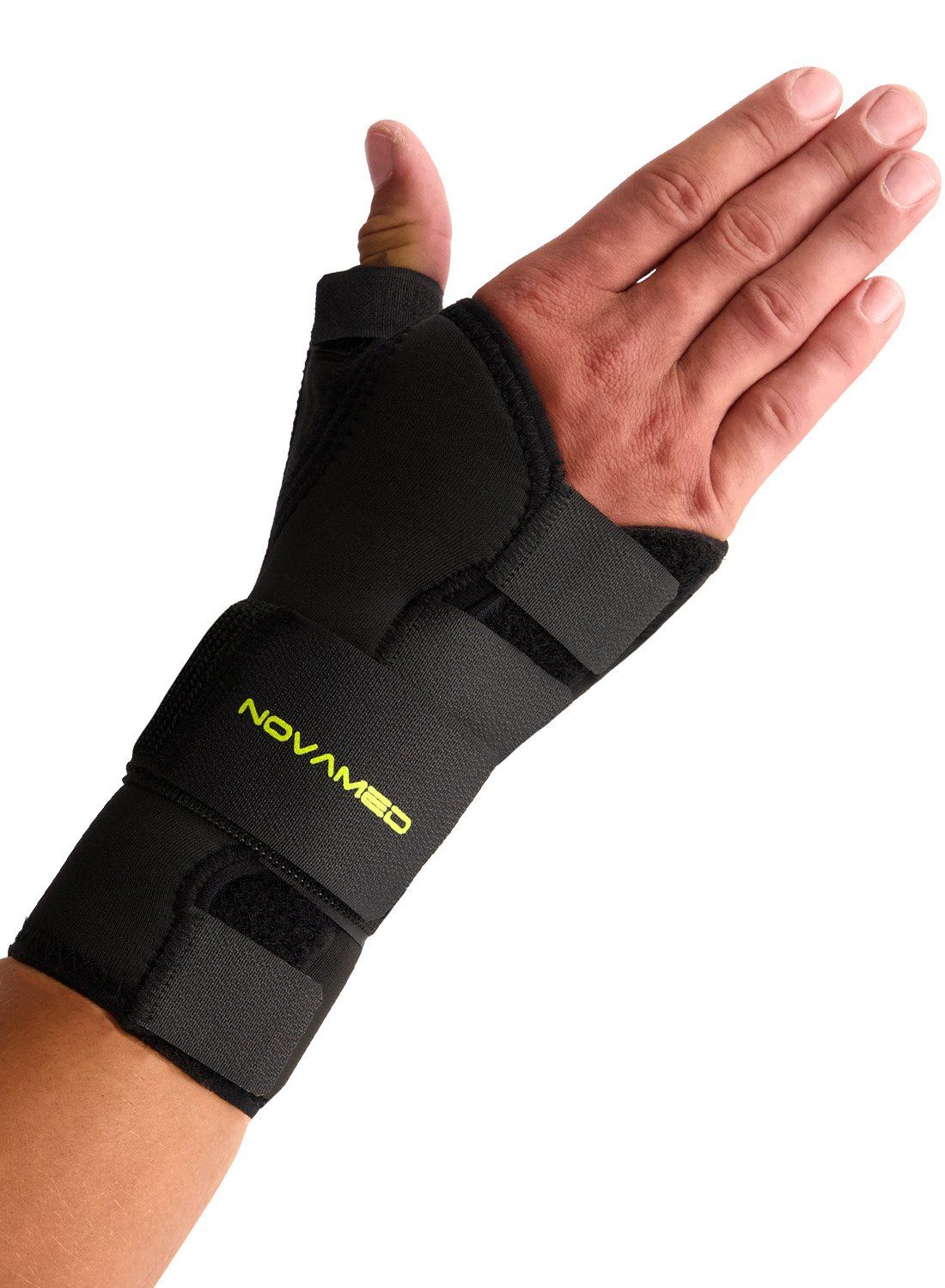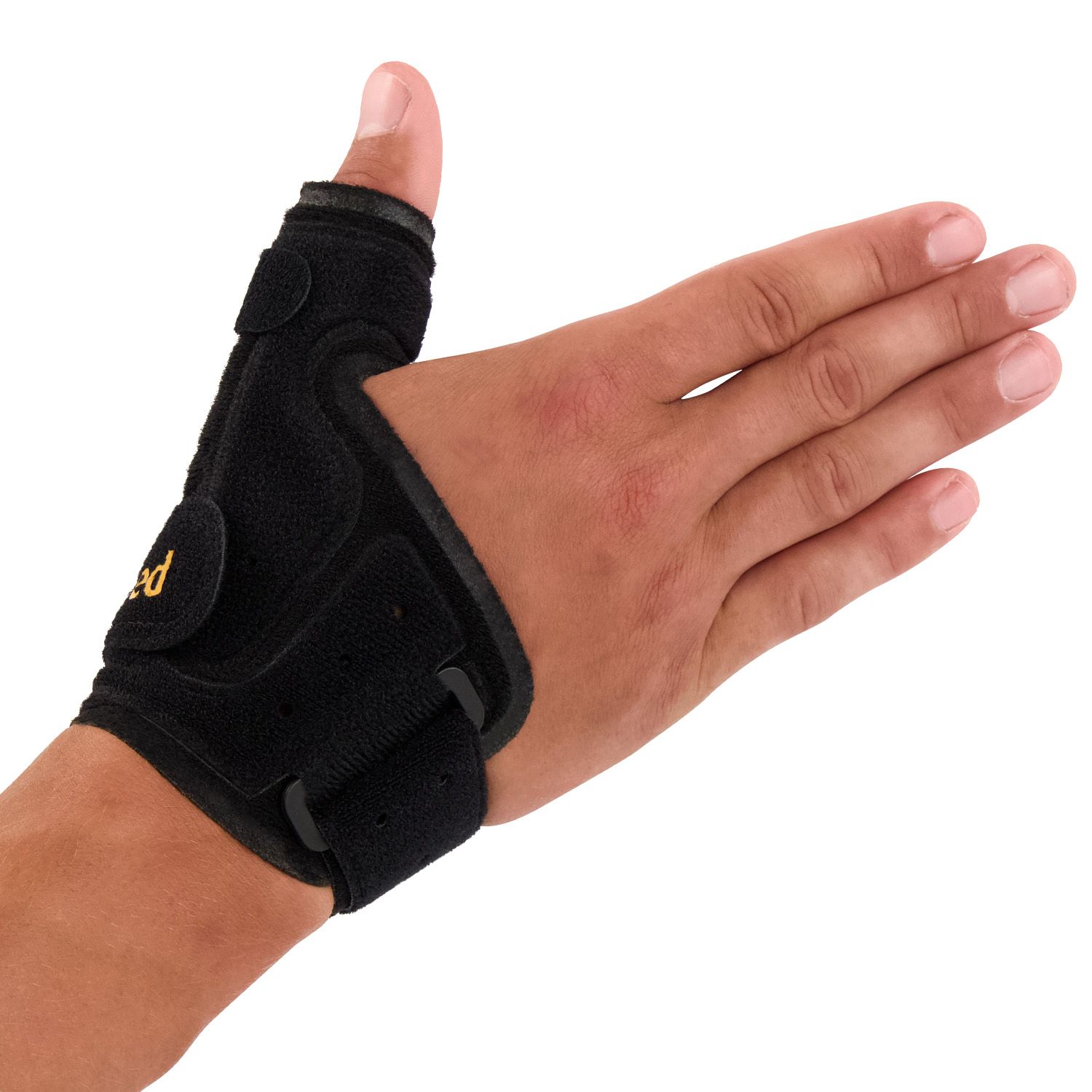RSI - Thumb
Do you suffer from an RSI thumb? In this article, you'll find more information about the complaint, its cause, and symptoms. Looking for advice on the right treatment method? Feel free to contact us for more information.
What is an RSI thumb?
Repetitive Strain Injury, or RSI, is a collective term for various complaints related to performing the same, often small and seemingly effortless movements over a long period of time. Bursitis and tenosynovitis are conditions associated with RSI. RSI symptoms vary per person, and many cases are not treated in time, which can lead to affecting other parts of the body. Repetitive Strain Injury consists of 3 risk phases, and the longer you wait, the worse it becomes.
Symptoms RSI Thumb
RSI symptoms usually develop gradually. However, they can also appear suddenly or acutely. RSI has the following symptoms:
- Tingling in hands
- Cold sensation in forearms & hands
- Nagging pain in wrists
- Numbness or loss of sensation in forearms & hands
In an advanced stage, RSI may also include other symptoms such as: irritation, severe pain, swelling, muscle and tendon weakness, pale skin, loss of grip strength, temperature fluctuations, and creaking joints.
Complaints RSI Thumb
RSI complaints vary from person to person, and many cases are not treated immediately and therefore not on time. This is risky because RSI complaints can eventually turn into stiffness and chronic pain, and even spread to other parts of the body. Repetitive Strain Injury typically progresses through 3 phases:
RSI phase 1:
You only experience pain during work activities. Additionally, muscle cramps, local fatigue, tingling and/or numbness may be present. RSI symptoms disappear after a period of rest.
RSI phase 2:
The pain is also noticeable after your work activities. Irritation, prickling, weakness and/or loss of strength occur. RSI symptoms do not go away after a break, weekend or night’s rest.
RSI phase 3:
In addition to the symptoms above, you may also suffer from swelling, pressure pain, changes in skin color, loss of function, temperature changes, and a numb, tingling feeling. These symptoms are also chronic in nature.
Causes RSI Thumb
RSI complaints can result from computer mouse use, leading to the issue known as mouse arm, or using other digital devices like a Wii, DS, Gameboy or from texting, known as texting thumb. Other potential causes include nonspecific CANS, carpal tunnel syndrome, tendon inflammation & tenosynovitis, bursitis. There are also less common causes like Radial Tunnel Syndrome, Cubital Tunnel Syndrome, Tendinosis, Enthesopathy (inflammation of tendon attachment), Dystonia, Thoracic Outlet Syndrome, Shoulder Girdle Syndrome, and Guyon Canal Syndrome.
This mainly occurs in the following target groups:
- Assembly workers
- Screen workers
- CAD drawers
- Precision mechanics
- Installers
- Cashiers
- Assembly line workers
- Order pickers
- Musicians
- Hairdressers
Treatment RSI Thumb
Repetitive Strain Injury is in most cases difficult to treat. It's different for everyone. Still, we outline 3 treatment options:
1. Consult a vocational expert or ergonomist
Larger companies usually have such specialists in-house. Think of an ergonomist or internal occupational expert. They can provide advice and make workplace adjustments. Smaller companies can also hire these professionals.
2. Therapies
Often, RSI symptoms cannot be fully cured, but therapies may still help. Examples include:
- Mensendieck therapy
- Cesar therapy
- Rehabilitation therapy
- Physiotherapy
- Therapeutic massage
- Medical fitness
- Backstretcher & Rolastretcher
3. General advice
It is also advisable to follow general tips. Tips from the following experts are helpful to know:
- General practitioner: contact immediately at early signs
- Diet: rich in amino acids, vitamins, minerals, and fatty acids
- Rest and reduce strain
- Stay active
Prevention RSI Thumb
The following ways to prevent RSI symptoms in the thumb are useful:
- Proper posture
- Vary your tasks
- Take regular breaks
- Mouse use: try to limit it
- Exercise muscles properly
- Manage workload effectively
- Use special tools: such as an ergonomic mouse or device
It can be concluded that using specialists who often recommend products and specific aids can help resolve this issue. At Podobrace, we offer various thumb braces that provide support for this condition.

Novamed Thumb Support / Wrist Splint

Super Ortho Thumb Support CMC

Dunimed Manu Thumb Support

Gladiator Sports Thumb / Wrist Support

- Physiotherapist
- Sports podiatrist
- Manual therapist
- Podopostural therapist
- Myofascial dry needling specialist


